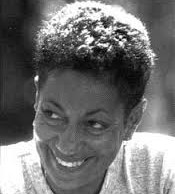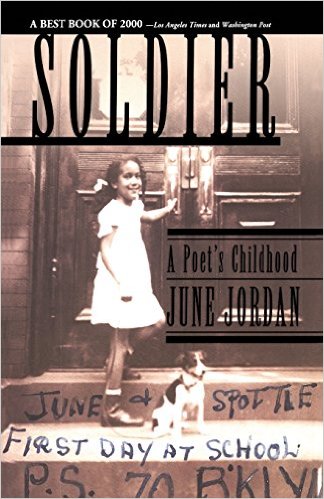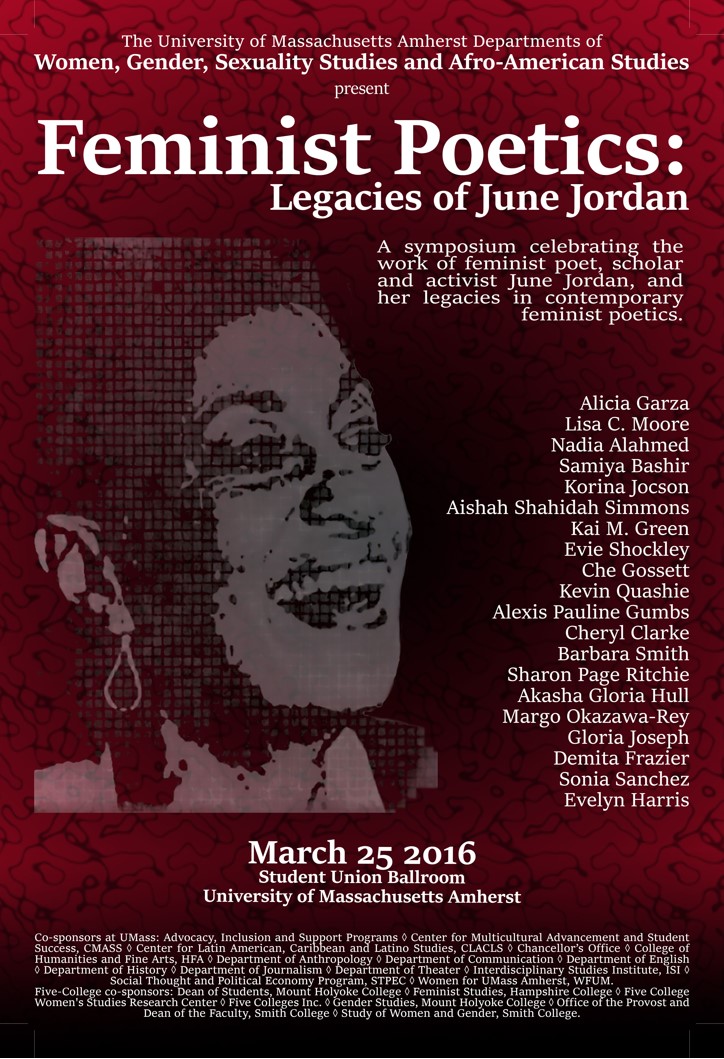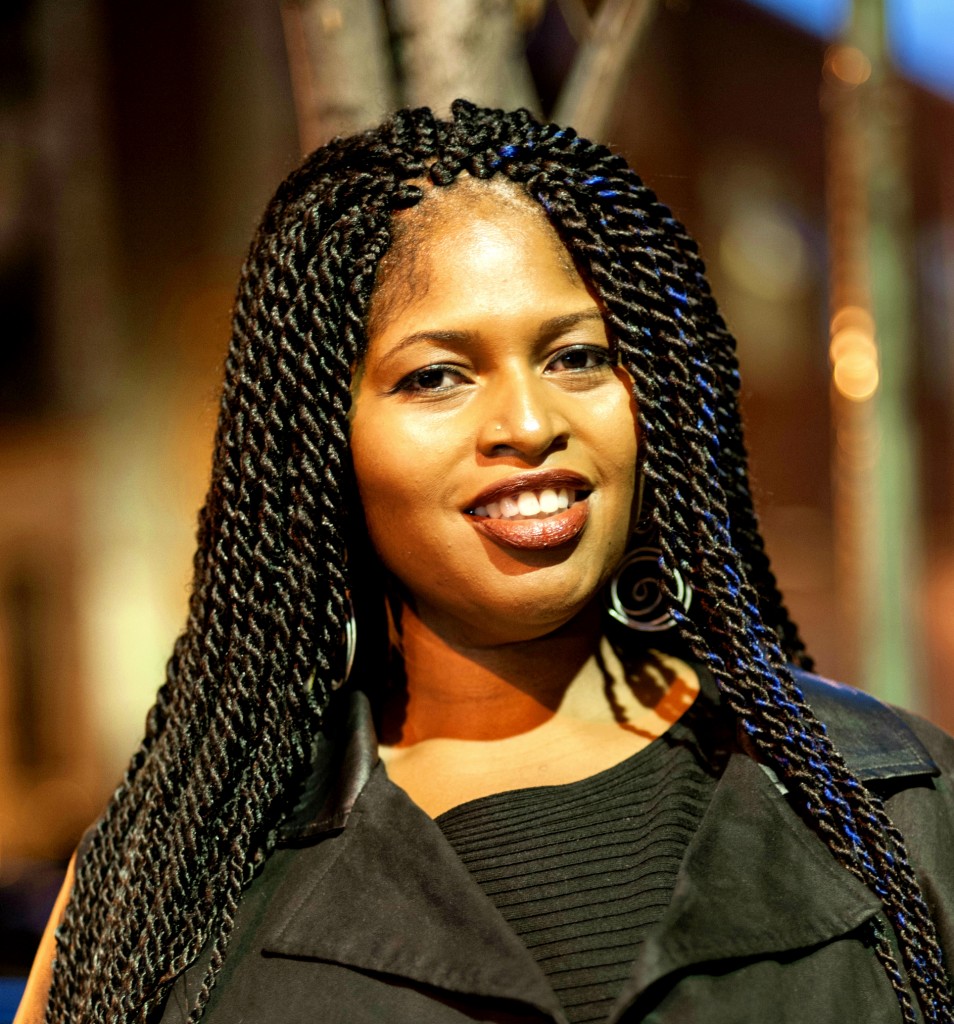“These words/ they are stones in the water”: Introduction to The Feminist Wire Forum on June Jordan
In her foreword to Directed by Desire: The Collected Poems of June Jordan, feminist writer Adrienne  Rich describes Jordan as “a most personal of political poets.”[1] Jordan’s refusal to honor accepted lines—between the personal and the political, between the erotic and the activist, between beauty and rage—extends throughout her career. As a poet, a fiction writer, a memoirist, a theorist, an activist and an educator, Jordan’s contributions span almost innumerable realms of cultural and political critique. From her first published book, Who Look at Me (1969), a collection of poems for children, through her memoir, Soldier: A Poet’s Childhood (2000), and her expansive, groundbreaking oeuvre of poetry and essays, Jordan stands as a model of radical social and political engagement through the arts. She authored over twenty five book-length works in at least four genres, each making beautiful, burning critiques of sexuality, gender, race, class and imperialism in the U.S. and across the globe, each claiming with crystalline urgency the power of language and the work it can do in the world.
Rich describes Jordan as “a most personal of political poets.”[1] Jordan’s refusal to honor accepted lines—between the personal and the political, between the erotic and the activist, between beauty and rage—extends throughout her career. As a poet, a fiction writer, a memoirist, a theorist, an activist and an educator, Jordan’s contributions span almost innumerable realms of cultural and political critique. From her first published book, Who Look at Me (1969), a collection of poems for children, through her memoir, Soldier: A Poet’s Childhood (2000), and her expansive, groundbreaking oeuvre of poetry and essays, Jordan stands as a model of radical social and political engagement through the arts. She authored over twenty five book-length works in at least four genres, each making beautiful, burning critiques of sexuality, gender, race, class and imperialism in the U.S. and across the globe, each claiming with crystalline urgency the power of language and the work it can do in the world.
Yet Jordan’s insistence on the arts as a source of power was not confined to the limits of the page. She  was a fiercely committed educator and activist throughout her lifetime, from her founding of The Voice of the Children, a poetry workshop for black and Latina/o youth in Brooklyn in the 1960s, through Poetry for the People, the radical poetry workshop and pedagogy program she developed at the University of California, Berkeley, which continues to influence poets and teachers today.
was a fiercely committed educator and activist throughout her lifetime, from her founding of The Voice of the Children, a poetry workshop for black and Latina/o youth in Brooklyn in the 1960s, through Poetry for the People, the radical poetry workshop and pedagogy program she developed at the University of California, Berkeley, which continues to influence poets and teachers today.
My earliest encounter with Jordan came during my first year at Smith College, when a research project on Ntozake Shange’s choreopoem for colored girls who have considered suicide/when the rainbow is enuf led me into the archives of Black women’s writings on sexuality, nation and race. In my research, I came across Jordan’s foundational essay, “Report from the Bahamas,” and knew right away that I had struck all kinds of gold. In the essay, Jordan describes the challenges of translating languages of gender, sexuality, and blackness across diasporic space, through the story of a brief vacation in the Bahamas:
 “This is my consciousness of race and class and gender identity as I collect wet towels, sunglasses, wristwatch, and head towards a shower…
“This is my consciousness of race and class and gender identity as I collect wet towels, sunglasses, wristwatch, and head towards a shower…
Yes: race and class and gender remain as real as the weather. But what they must mean about the contact between two individuals is less obvious, and, like the weather, not predictable.
And when these factors of race and class and gender absolutely collapse is whenever you try to use them as automatic concepts of connection. They may serve well as indicators of commonly felt conflict, but as elements of connection they seem about as reliable as precipitation probability for the day after the night before the day.”[2]
Like many black queer feminists in their first year of college, I was just at the start of everything. I had not yet learned about intersectional inquiry; I had not yet discovered Kimberlé Crenshaw or the Combahee River Collective, and was just at the swooning start of my love affair with Audre Lorde. It was these words from June Jordan that opened me to the world of black feminist writing, the chorus of minds and voices that would propel and sustain me as both a writer and a scholar, as I moved into adult life. In the essay—itself a story, studded with song lyrics, dialogue, and poetic reflection—Jordan gave me language for what my nineteen years of life as a black queer woman had begun to reveal: that difference and power were fraught, contested spaces, and that to understand those spaces I had to commit constantly to understanding myself anew.
As all of us committed to change can attest, this practice of rigorous self-interrogation, critical thought, and “personal” politics is deeply needed now, in a moment when imperialism and state-initiated and state-sanctioned violence threaten all aspects of our lives, from the individual to the generational, from the classroom to the war zone, from Ferguson to Flint to Chibok to Palestine.
Recognizing the urgent relevance of Jordan’s work today, I and my colleagues in Women, Gender,  Sexuality Studies and Afro-American Studies at the University of Massachusetts, Amherst set ourselves to planning “Feminist Poetics: Legacies of June Jordan,” a one-day symposium of great interest to students, faculty and the larger community, taking place at UMass on March 25th, 2016.
Sexuality Studies and Afro-American Studies at the University of Massachusetts, Amherst set ourselves to planning “Feminist Poetics: Legacies of June Jordan,” a one-day symposium of great interest to students, faculty and the larger community, taking place at UMass on March 25th, 2016.
The symposium will celebrate Jordan’s work by highlighting the intellectual and artistic contributions of scholars, artists, and activists who extend Jordan’s legacy of feminist poetics. The event will gather a broad, intergenerational group of important feminist thinkers that includes foundational writers and theorists Cheryl Clarke, Gloria Joseph, Sonia Sanchez, Evelyn Harris, Paula Giddings, and Combahee River Collective members Barbara Smith, Demita Frazier, Sharon Page Ritchie, Margo Okazawa-Rey, and Akasha Gloria Hull. These scholars will engage in rich conversation with emerging and established theorists, artists, and activists including #BlackLivesMatter co-founder Alicia Garza, Evie Shockley, Samiya Bashir, Kevin Quashie, Jennifer DeClue, Aneeka Henderson, Che Gosset, and my brilliant fellow TFW Editorial Collective Members Aishah Shahidah Simmons, Alexis Pauline Gumbs, and Kai M. Green, whose works, like Jordan’s, highlight the crucial connections between feminist inquiry, activism, and the arts. The event is free and open to all who register. I encourage you to join us by registering here before March 20th. If you are not able to register, please do watch the event via live stream here.
In the coming week, as we approach the “Feminist Poetics: Legacies of June Jordan” Symposium, The Feminist Wire will celebrate Jordan’s immense contributions to contemporary black, feminist, queer, and anti-imperialist discourse, and all she has offered each of us in our own thinking and work. This forum would not be possible without the brilliance, vision, and work of TFW Editorial Collective members Heidi R. Lewis, Heather Turcotte, TC Tolbert, Martina “Mick” Powell, and especially Aishah Shahidah Simmons, whose dedication to Jordan’s legacy has driven this process forward.
Like Jordan’s oeuvre, the pieces gathered here take on many different themes, focuses, forms and genres. Still, I believe we can read each of these offerings as a poem, in the sense that Jordan suggests in her 1977 piece, “These Poems”:
These poems
they are things that I do
in the dark
reaching for you
whoever you are
and
are you ready?These words
they are stones in the water
running awayThese skeletal lines
they are desperate arms for my longing and loveI am a stranger
learning to worship the strangers
around mewhoever you are
whoever I may become.[3]
Jordan asks us to claim and commit to the action of our art, the poetry of our activism, and the learning it takes to be and become, constantly. In this forum, we offer stones across these waters of poetry, thought, critique and change, treading lines along Jordan’s path. Thank you for following as we move.
[1] Adrienne Rich, “Foreword.” Directed by Desire: The Collected Poems of June Jordan, xxiii.
[2] June Jordan, “Report from the Bahamas.” In Ryan, Barbara ed. Identity Politics in the Women’s Movement. New York: NYU Press, 122, 125.
[3] June Jordan, “These Poems.” Things That I Do in the Dark (1977).
Mecca Jamilah Sullivan, Ph.D., is Assistant Professor of Women, Gender, Sexuality Studies at the University of Massachusetts, Amherst, and an Associate Editor for Arts and Culture at The Feminist Wire. Her scholarly and creative works on gender and sexuality in African Diaspora cultures have appeared in Best New Writing, Callaloo, Feminist Studies, Palimpsest, Crab Orchard Review, GLQ, Jacket2, Robert Olen Butler Fiction Prize Stories, BLOOM, TriQuarterly, Public Books, American Fiction, Prairie Schooner, Ebony.com, TheRoot.com, Ms. Magazine online, and many others. She is the author of the short story collection, Blue Talk and Love (2015), a current finalist for both the 2016 Lambda Literary Award for Lesbian Fiction and the 2016 Edmund White Award for Debut Fiction. A current Pushcart Prize nominee, she is the winner of the Charles Johnson Fiction Award, the Glenna Luschei Fiction Award, the James Baldwin Memorial Playwriting Award, and fellowships, scholarships and residencies from the National Endowment for the Arts, the Mellon-Mays Foundation, Williams College, Rutgers University, the Bread Loaf Writers’ Conference, Yaddo, the Hedgebrook Writers’ Retreat, the Social Sciences Research Council, and the Center for Fiction in New York City, where she received a 2011 Emerging Writers Fellowship. She is currently completing a scholarly manuscript, The Poetics of Difference: Queer Feminist Forms in the African Diaspora, which explores the politics of formal innovation in global black women’s literary and artistic cultures.





Pingback: The Occupation Stole My Words, June Jordan Helped me to Relocate Them - The Feminist Wire
Pingback: "Naming Our Destiny": Afterword to The Feminist Wire's Forum on June Jordan - The Feminist Wire